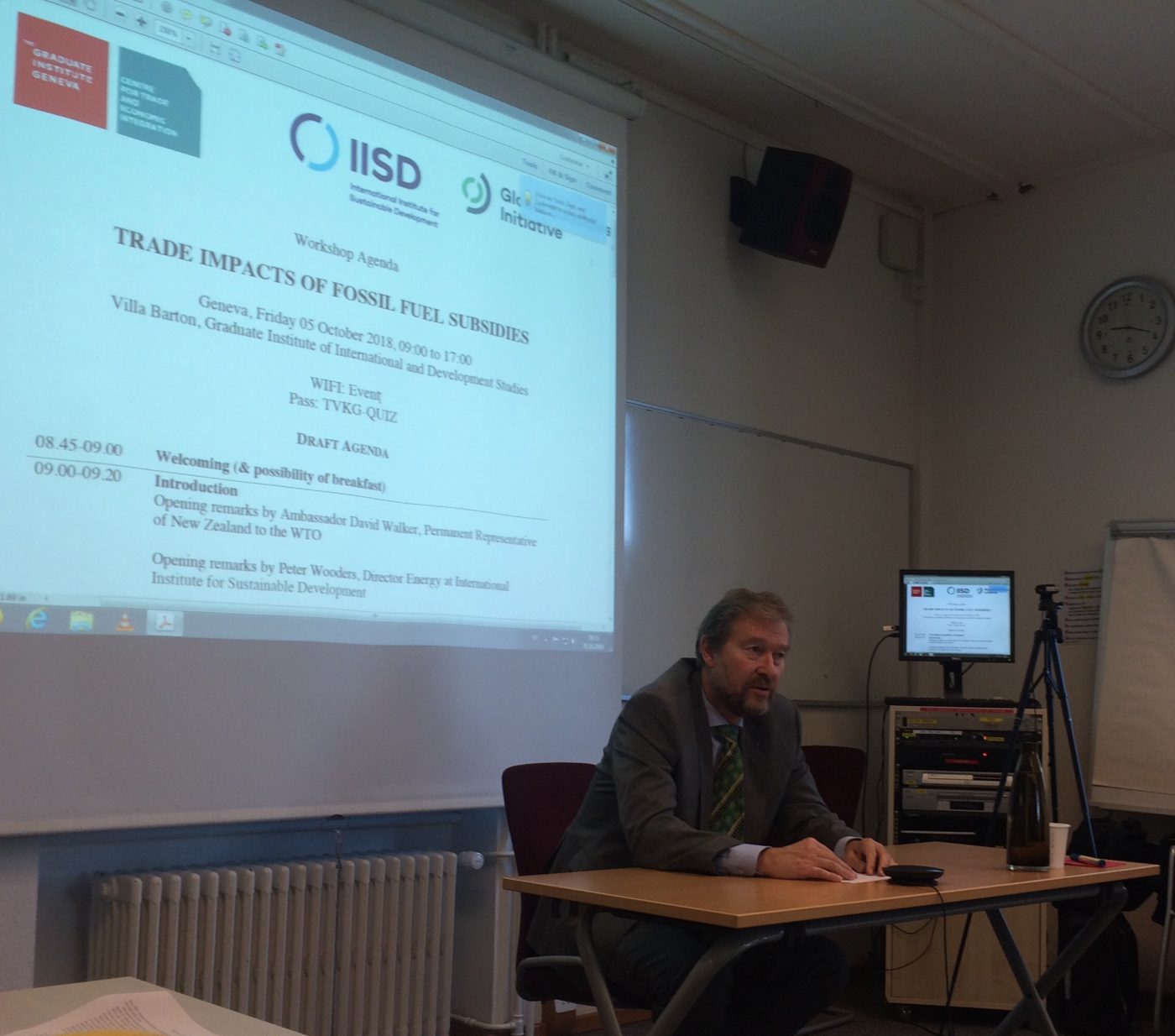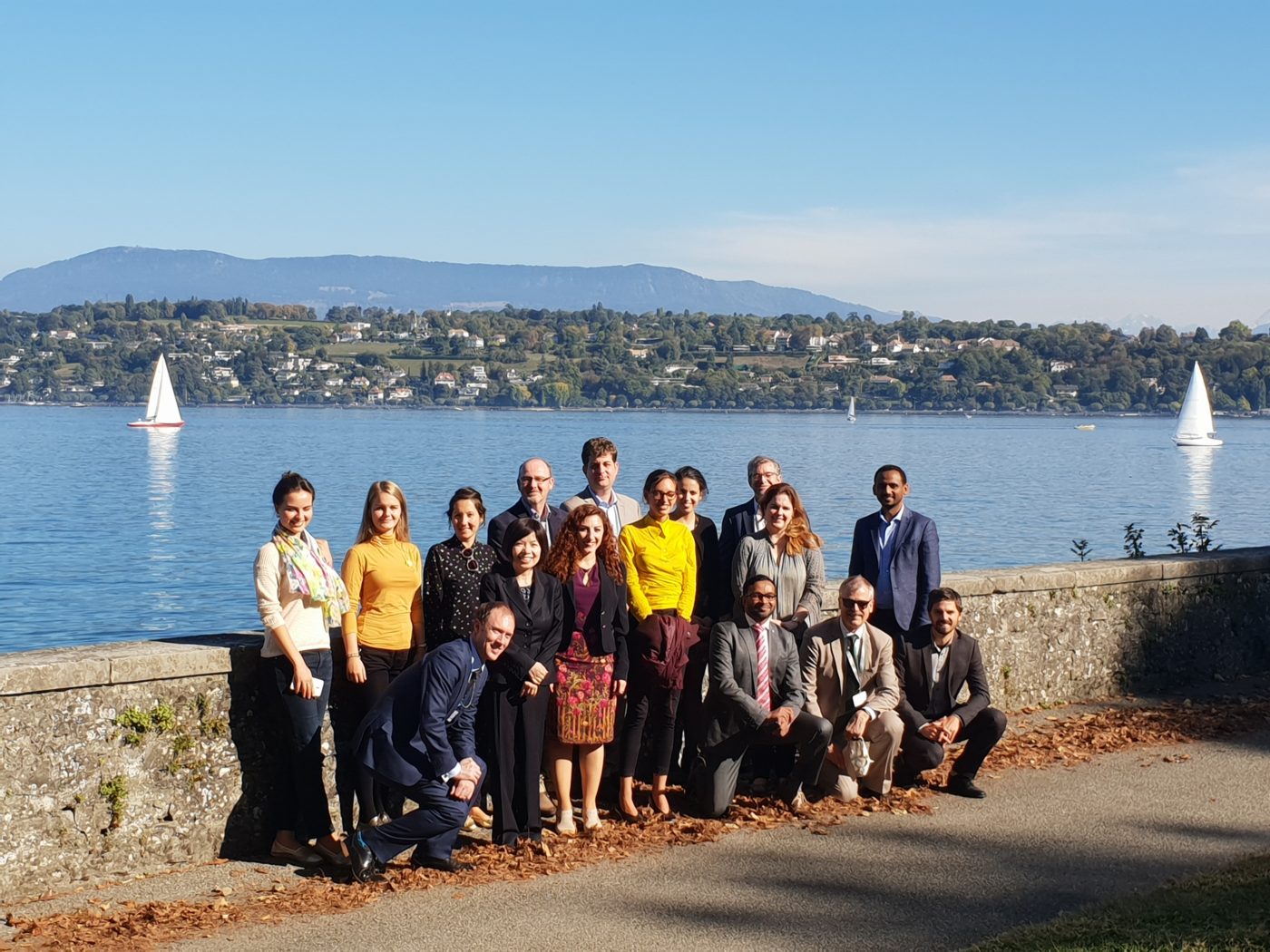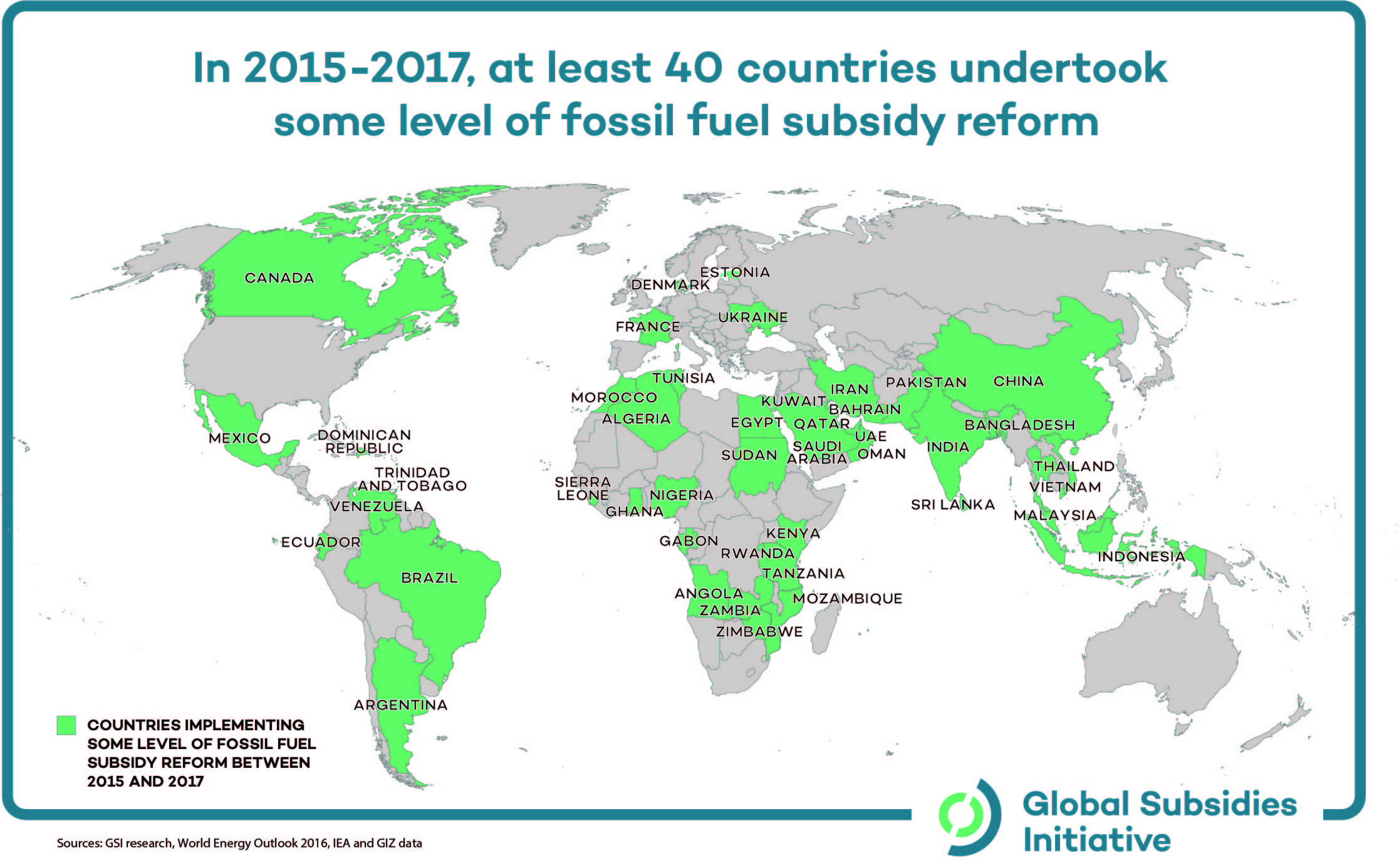BARILOCHE – June 14, 2018 – Two G20 members announced today that they will carry out a voluntary peer review of their fossil fuel subsidies, in a move to support transparency and contribute to their reform.
In September 2009, leaders of G20 countries committed to phasing out and rationalizing inefficient fossil fuel subsidies that encourage wasteful consumption. Peer reviews are a very important step towards achieving this goal, encouraging transparency, accountability and mutual learning. Asia-Pacific Economic Cooperation (APEC) leaders have also made a similar declaration, resulting in several of its member countries also undertaking peer review.
“Taking the time to thoroughly assess subsidies, with experience brought in from international peers and other experts, has allowed countries to ask whether those subsidies represent value-for-money and are targeted in line with their aims,” said Peter Wooders, Director of IISD’s Energy Program. “In common with countries that have already undertaken peer reviews, we expect Argentina and Canada to identify areas where public policy can be improved and public expenditure reduced.”
Twelve economies have already undergone the process or are in the process of peer reviewing their fossil fuel subsidies, including China, the U.S., Mexico, Germany, Indonesia and Italy (under the G20), as well as Peru, New Zealand, the Philippines, Chinese Taipei, Vietnam and Brunei (under APEC). Finland and Sweden also completed voluntary self-reviews of their subsidies, demonstrating that this process is also open to non-G20 or APEC members.
“New Zealand considers that peer reviews are an effective way to build support for reform, increase transparency and share best practice,” said Sara Meymand, Trade and Sustainability Manager, New Zealand Ministry of Foreign Affairs and Trade. “New Zealand, as Chair of the Friends of Fossil Fuel Subsidy Reform, congratulates Argentina and Canada on their commitment to the peer review process.”
In 2016 the OECD estimated that Argentina’s government spent USD 15 billion in support measures to fossil fuels. In Canada, the government offered USD 2.2 billion in support, including federal and subnational measures.
In 2017 IISD published a guidebook to support economies interested in undertaking self- or peer review of their fossil fuel subsidies. The guidebook explains the different elements of a review and provides case studies of how countries have approached and undertaken reviews.
With this announcement, Argentina and Canada are the latest to join the group of economies leading the commitment to reform fossil fuel subsidies, which should encourage other countries to follow these positive examples.
-30-
For media inquiries please contact:
- Lourdes Sanchez: lsanchez@iisd.org
- Philip Gass : pgass@iisd.org
- Ziona Eyob: zeyob@iisd.ca


